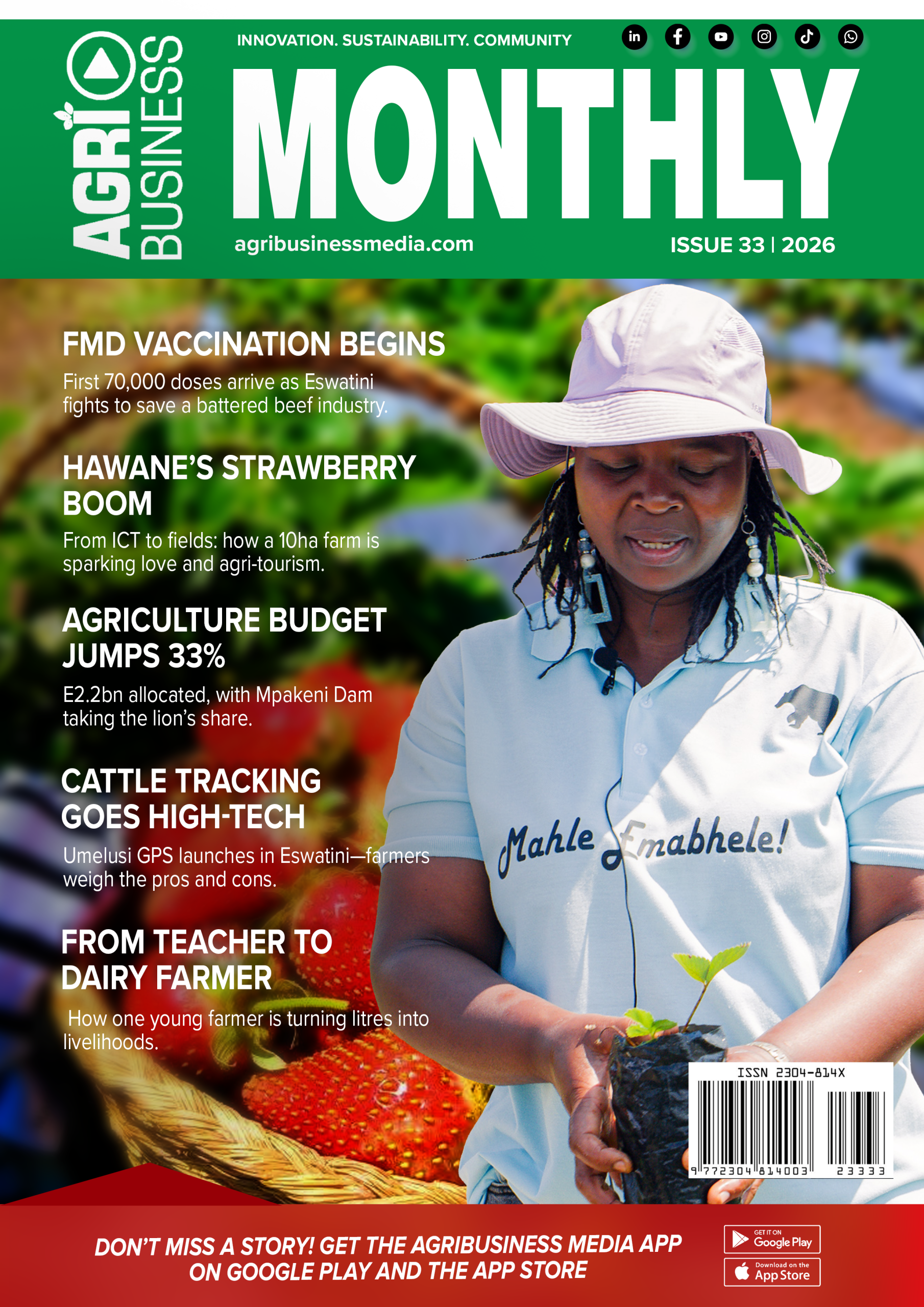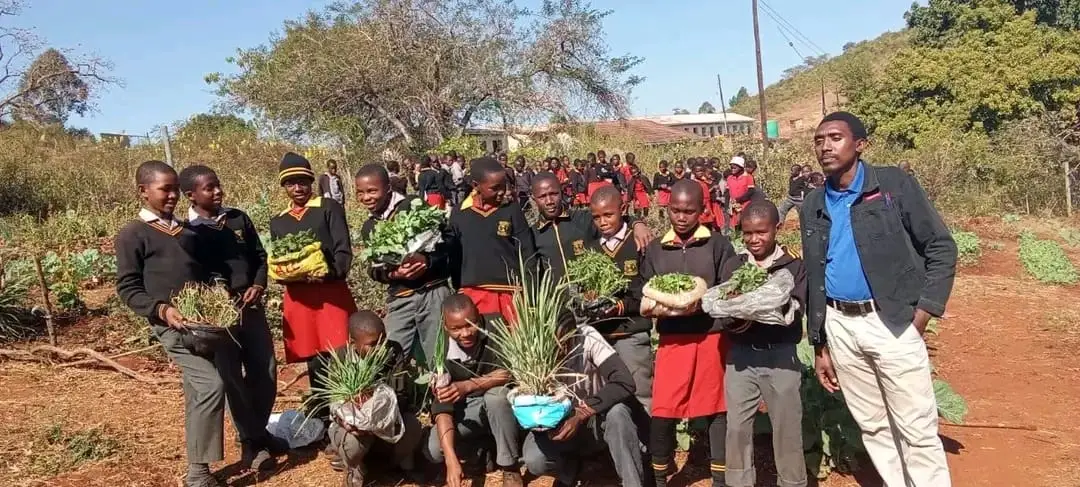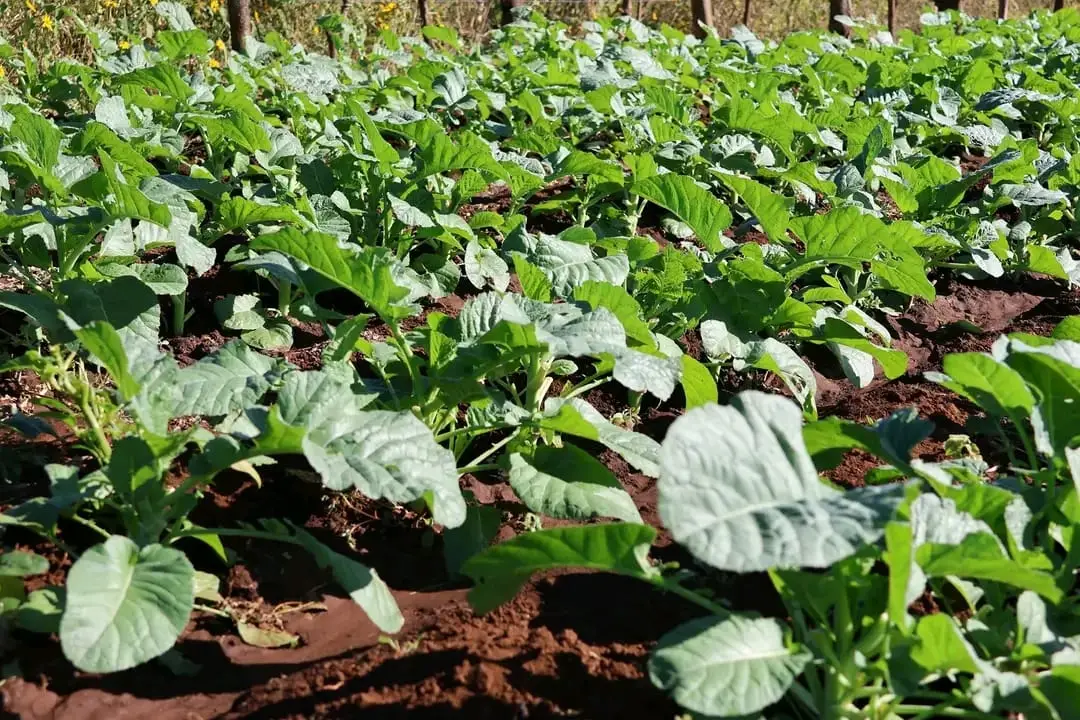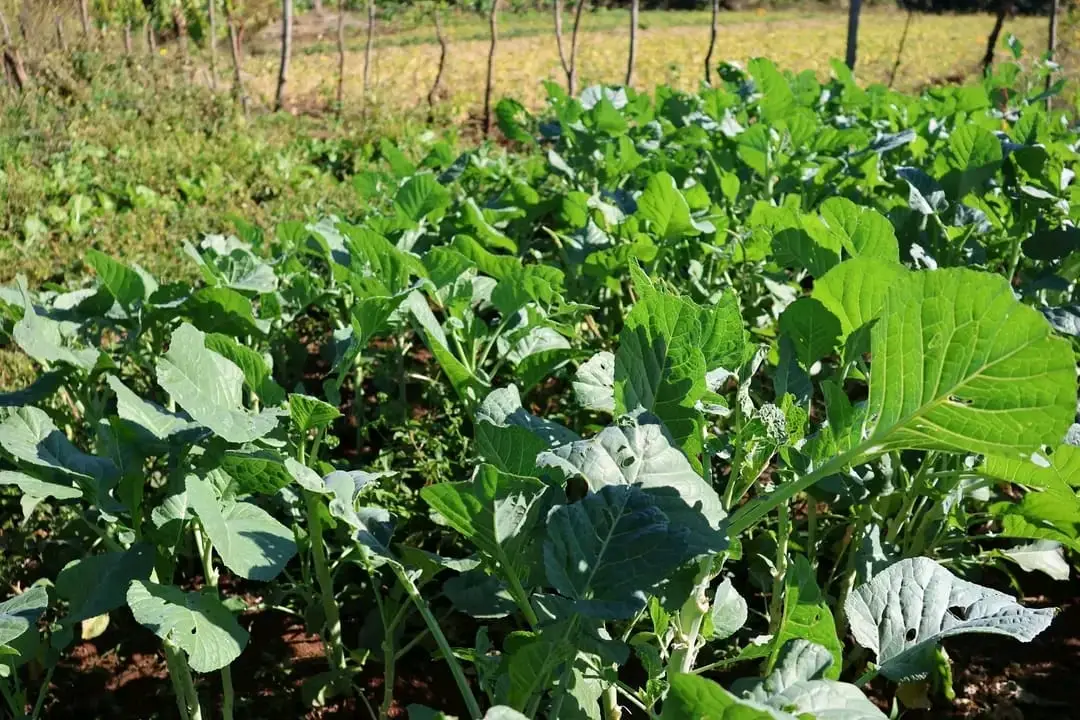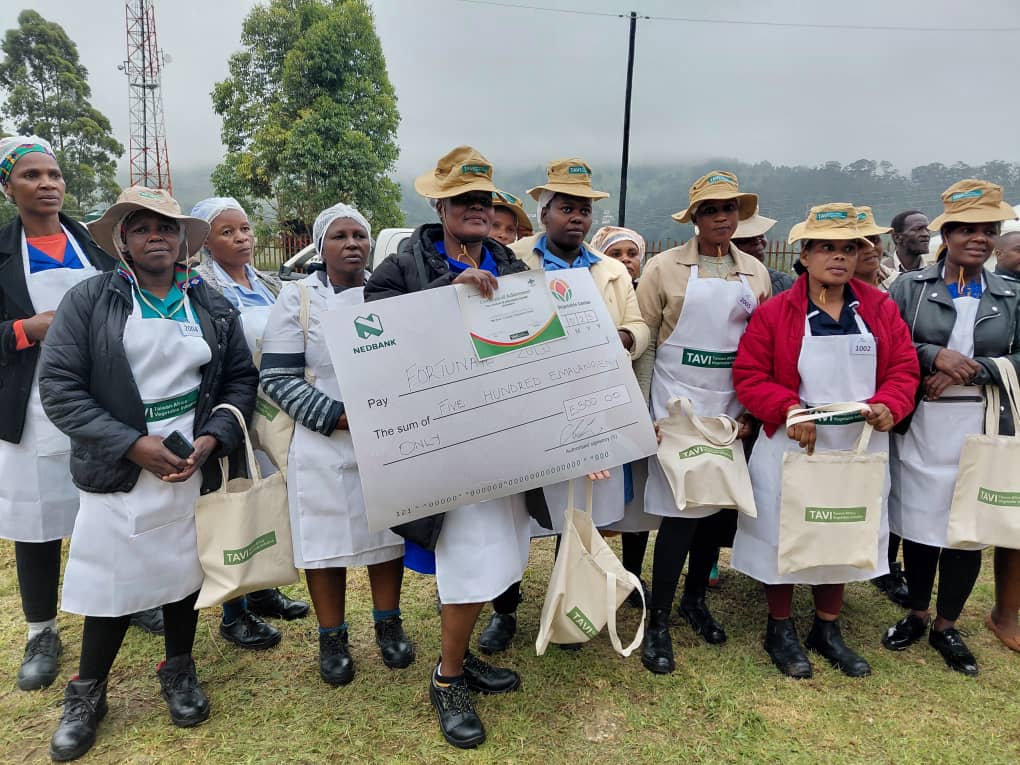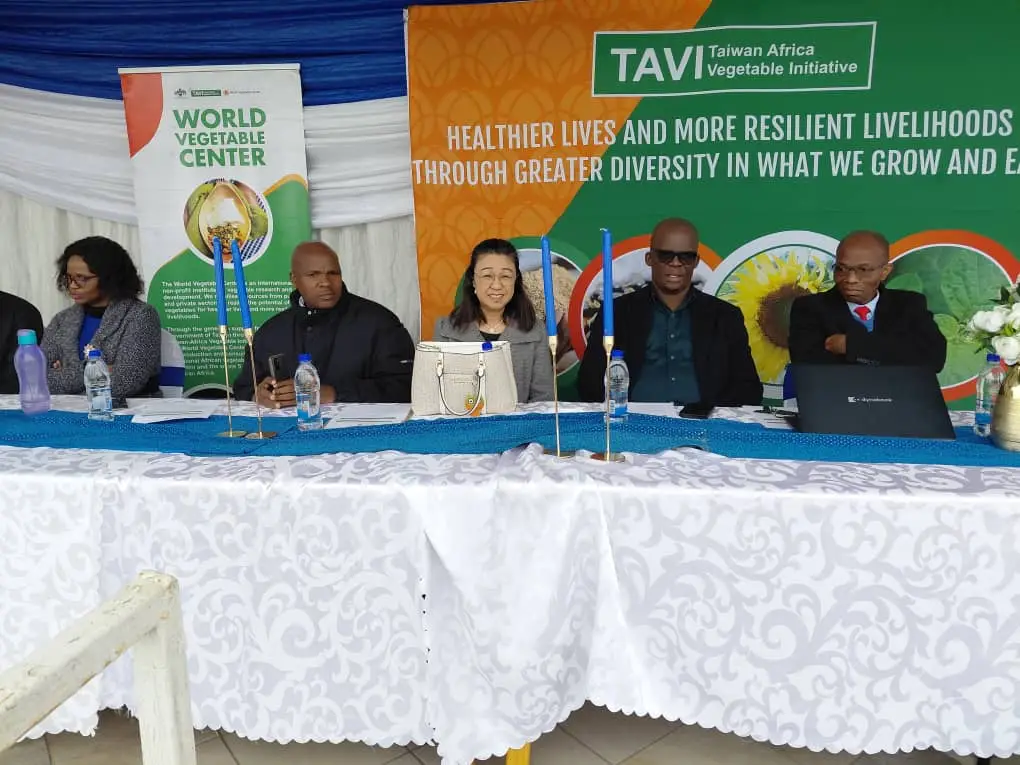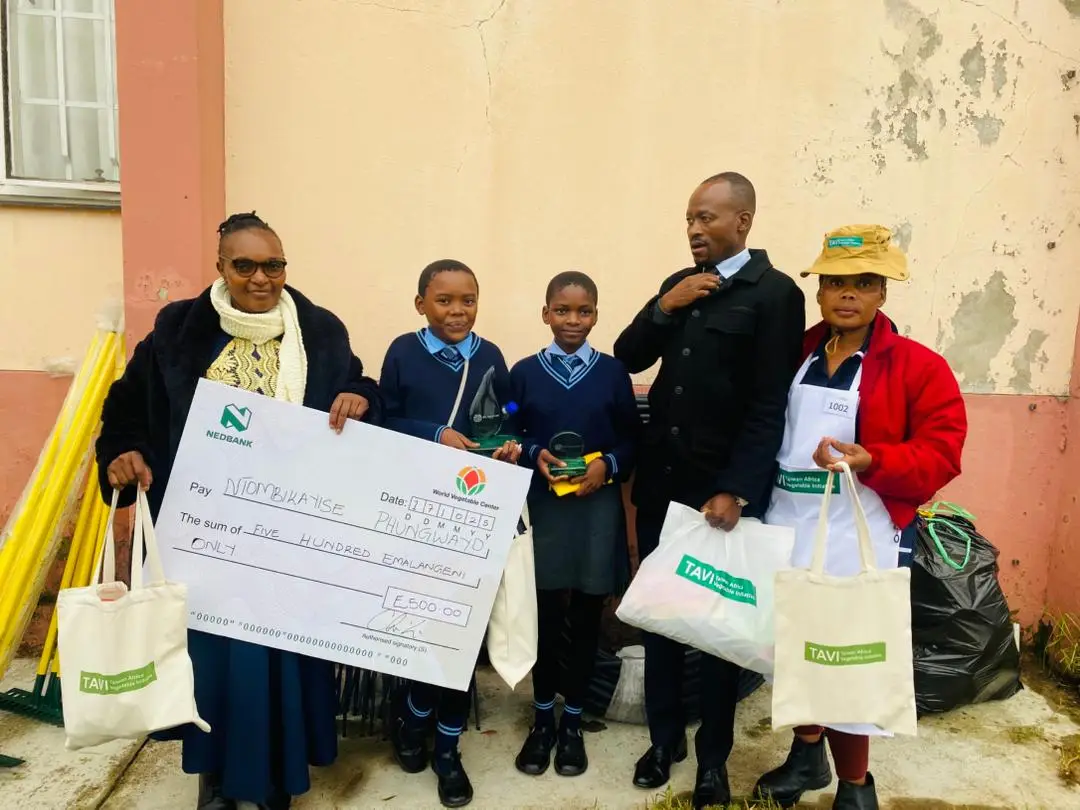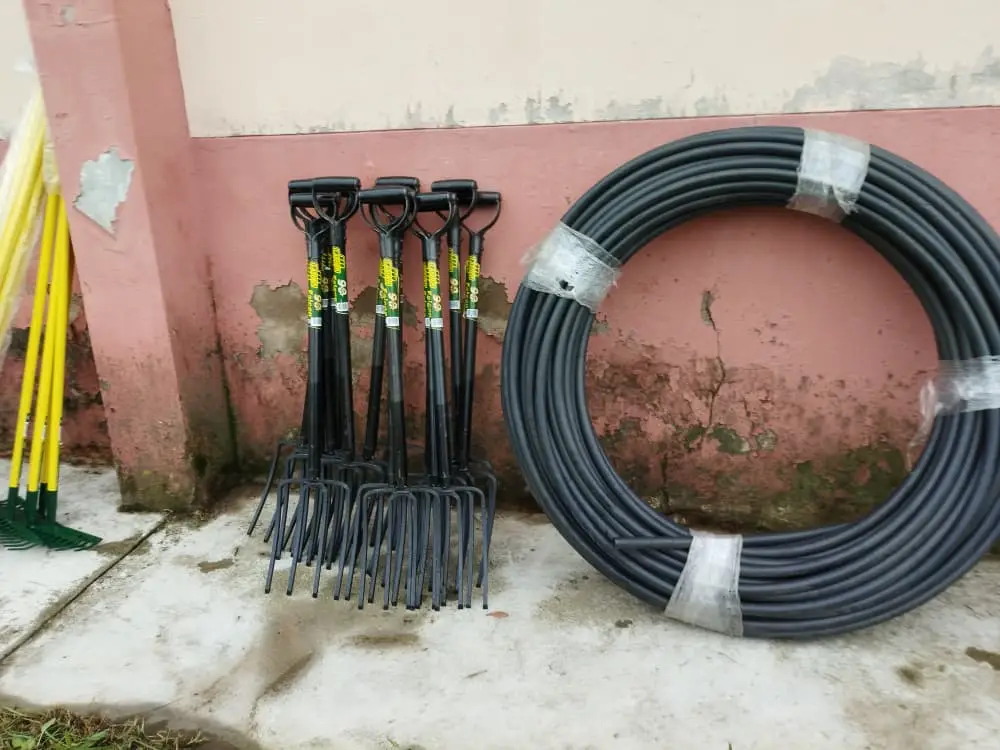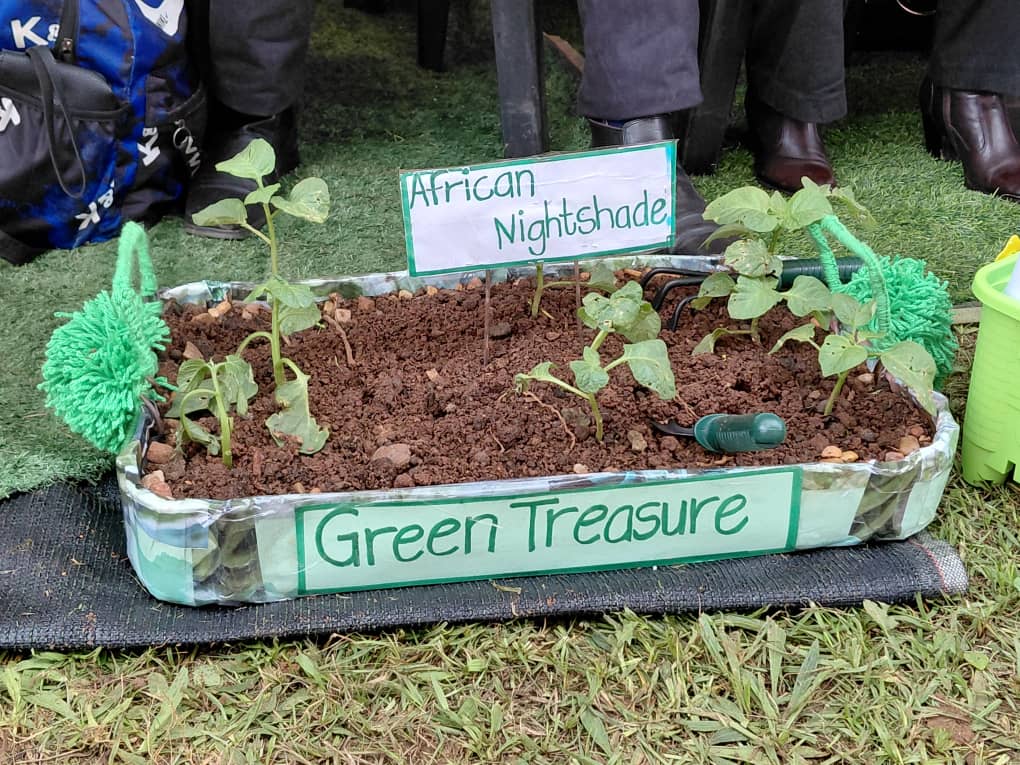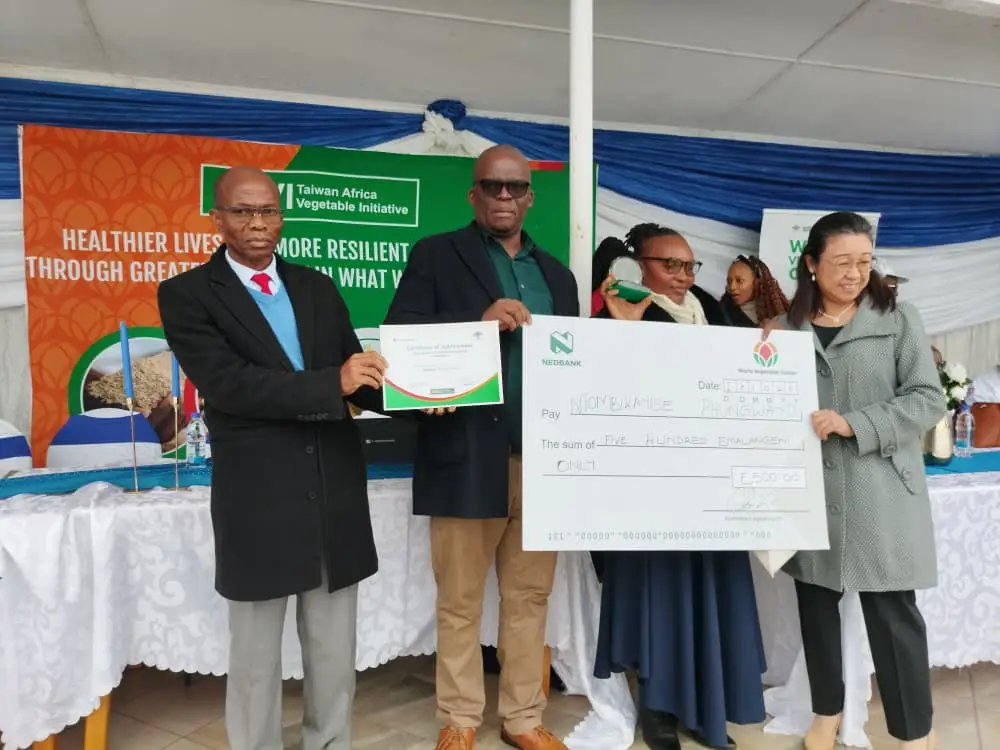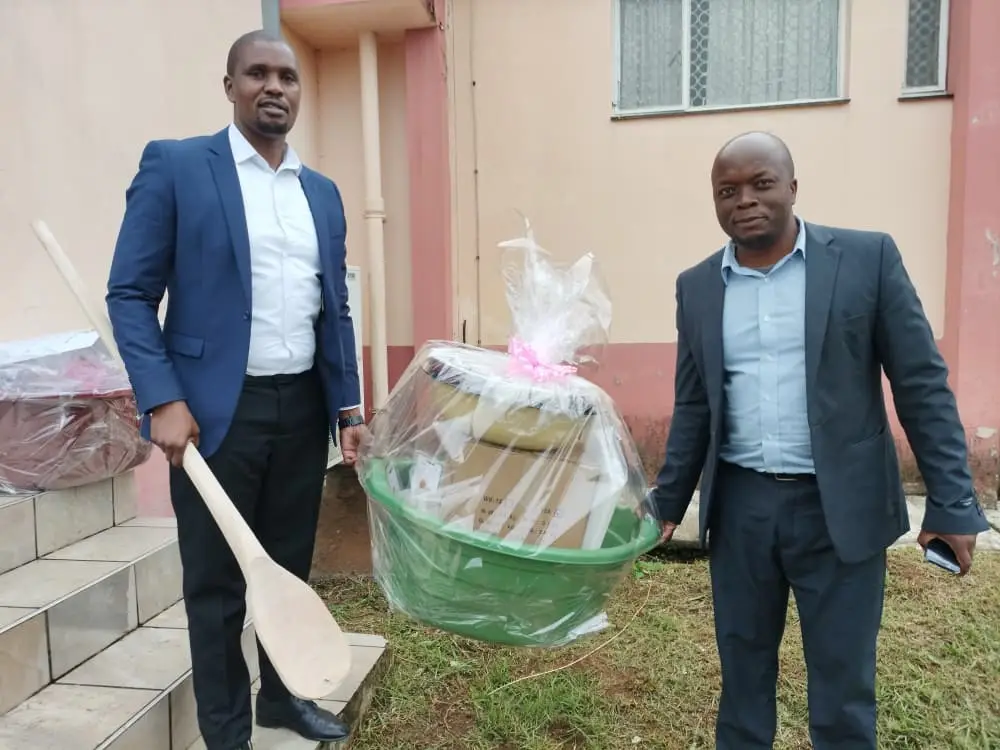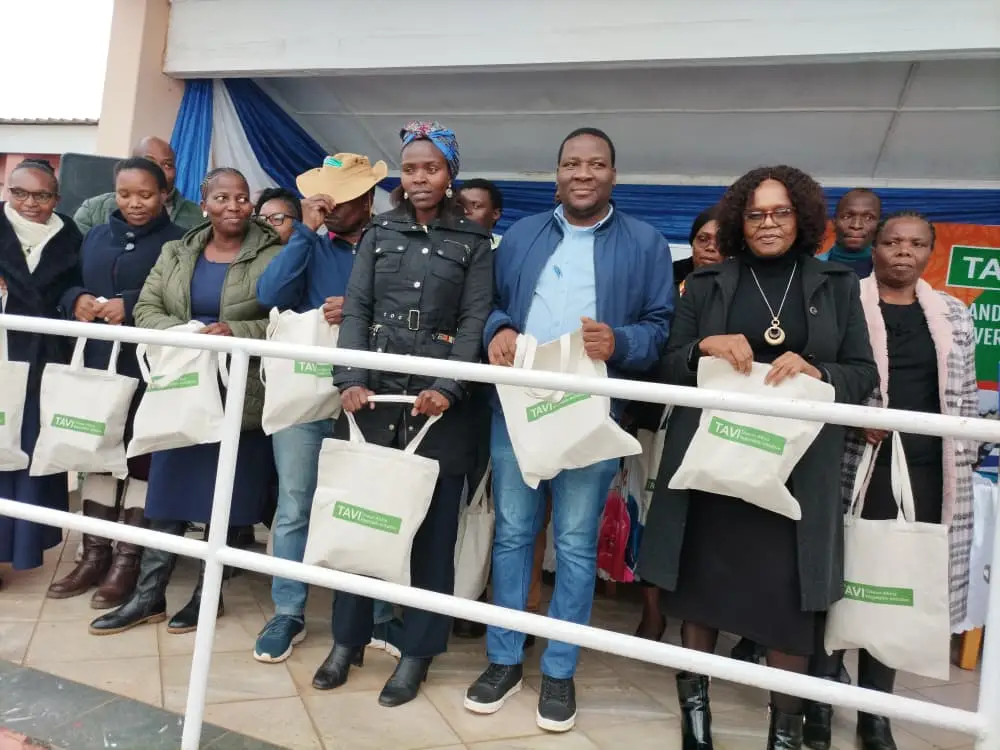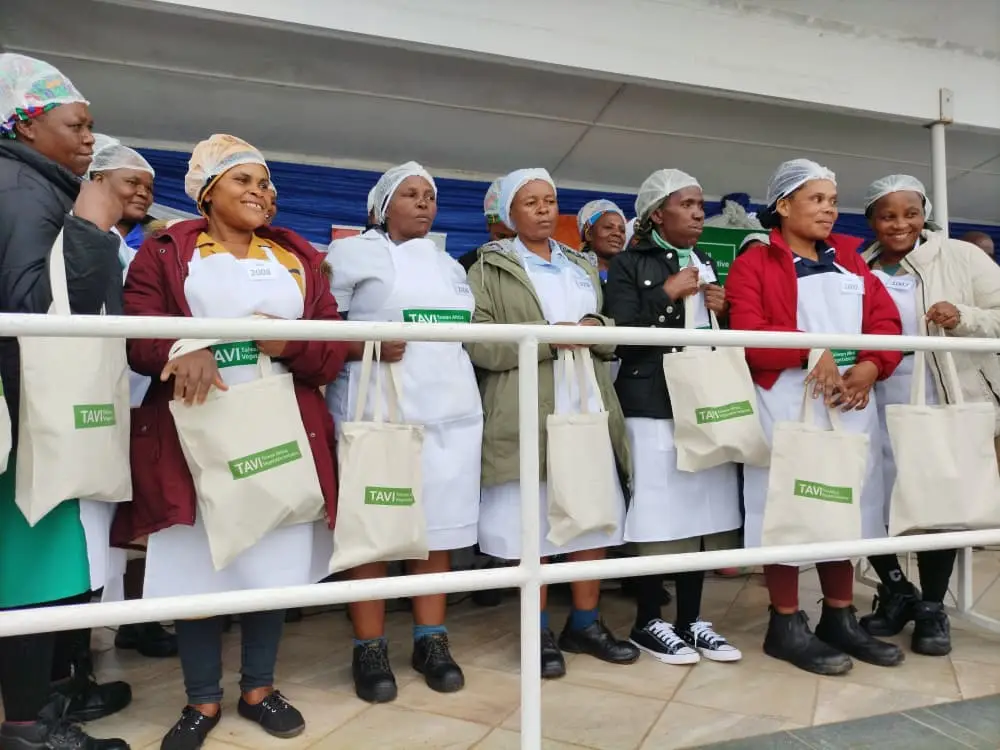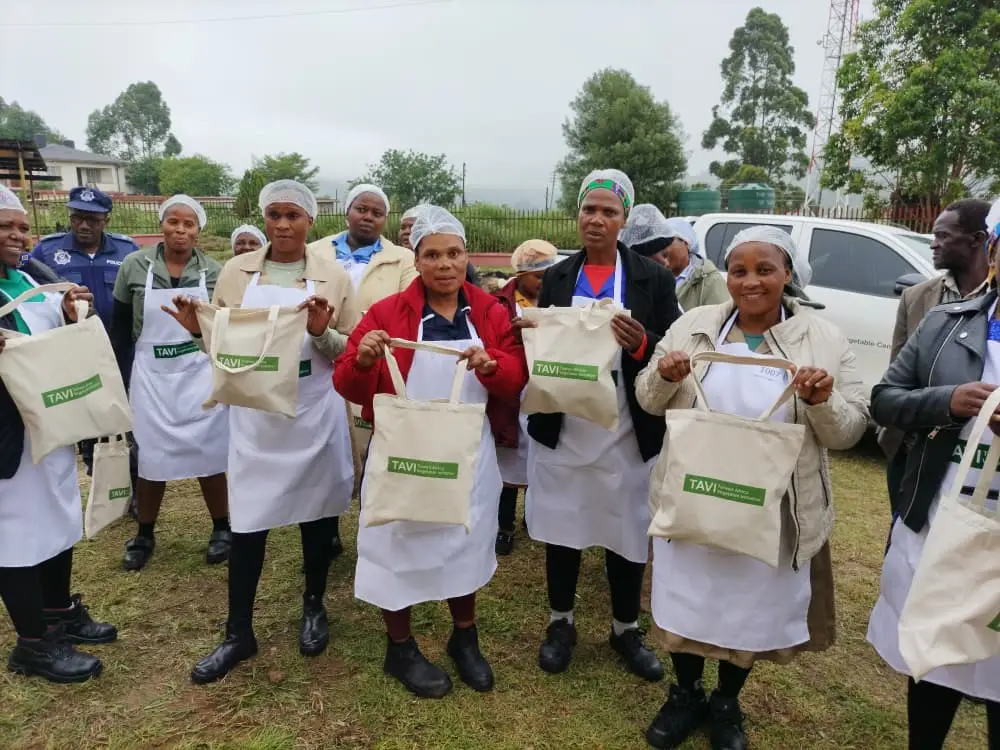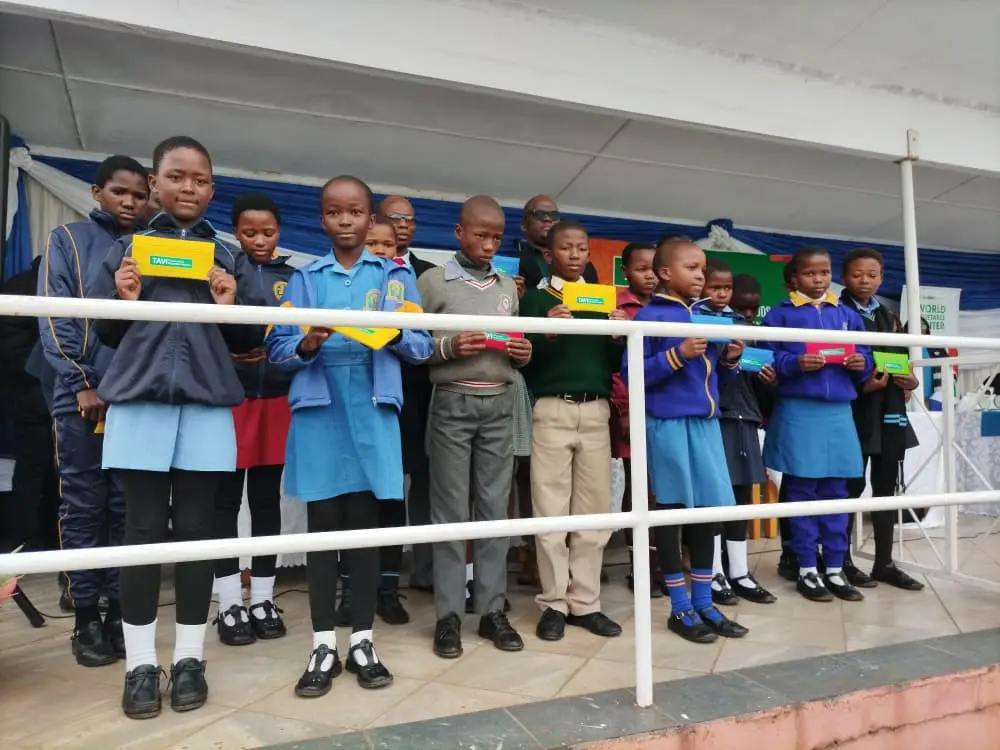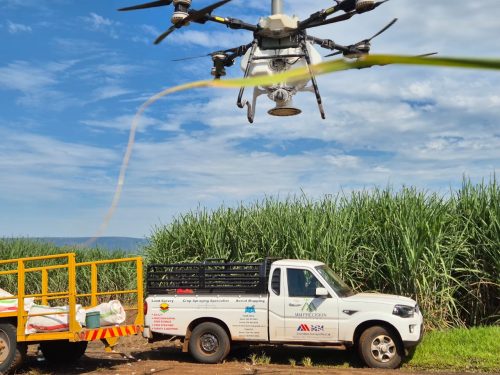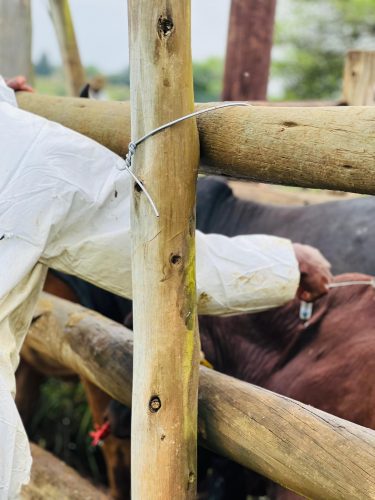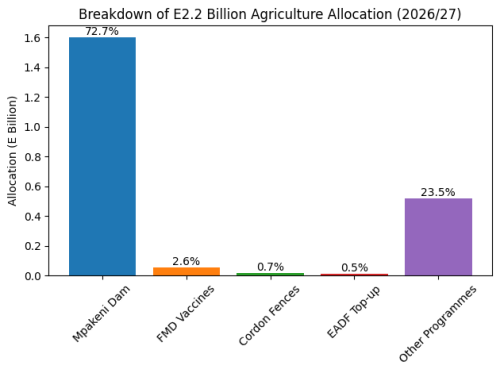BY PHESHEYA KUNENE– EDITOR
MBABANE – They may still wear tiny uniforms and carry lunch boxes, but Eswatini’s young learners are already sowing seeds that could transform the nation’s agricultural future.
Through the Taiwan Africa Vegetable Initiative (TAVI), primary schools across the country are cultivating more than just crops, they’re cultivating curiosity, confidence, and a culture of farming excellence.
At the heart of this transformation was the TAVI Inaugural Schools Competition, hosted on Friday at the Eswatini College of Technology (ECOT). The event brought together over a dozen schools in a celebration of innovation, skill, and the undeniable potential of Eswatini’s youth.
For many of these learners, farming is no longer an afterthought, it’s a pathway to discovery, leadership, and self-sufficiency.
Turning Classrooms into Fields of Possibility
What began as a modest initiative to reintroduce traditional vegetables into school gardens has now blossomed into a full-scale educational movement.
Through poetry, cooking, quizzes, and gardening contests, learners showcased a rare blend of creativity and agricultural knowledge, proving that farming, when taught right, can be both exciting and aspirational.
In the Cooking Competition (Learners) category, Sydney Williams Primary School emerged victorious, with Boyane and Ezulwini Community Primary Schools securing second and third place.
In the Quiz Category, Lavumisa’s Sakhile Dlakudze took top honours, followed by Khonelinkhosi Ngwenya (Ezulwini Community) and Melokuhle Mkhonta (Sydney Williams).
The Poetry Category celebrated Amuhle Sibandze (Sydney Williams), Ngcebo Masuku (Ezulwini Community), and Siwakhile Ginindza (Tentele) for their creative brilliance.
Meanwhile, the School Cooks Competition recognised Stuff Nhleko (Sydney Williams), Babazile Nxumalo (Boyane), and Fortunate Zulu (Ezulwini Community), while the Gardening Activities crowned Musa Maseko (Enhlanhleni), Nonhlanhla Dlamini (Mgululu), and Ntombikayise Phungwayo (Lavumisa) as green-thumb champions.
Beyond Prizes, A Lesson in Purpose
Prizes ranged from cash rewards and farming tools to school utensils and branded stationery. But the real victory lay in how the competition transformed learning into a hands-on life lesson.
Schools took home wheelbarrows, garden hoses, rakes, and kitchen utensils, ensuring that the skills learned continue to bear fruit long after the event.
Agribusiness Media Editor, Phesheya Kunene, noted that initiatives like TAVI are “changing the way young people think about food, the environment, and self-reliance.”
He added, “This is not just agriculture, it’s a classroom without walls. It’s a movement nurturing the next generation of problem-solvers, innovators, and responsible citizens.”
Growing Knowledge, Growing Confidence
For many learners, this competition was their first opportunity to see agriculture as something beyond a rural activity.
Through gardening, cooking, and creative expression, they gained a deeper understanding of soil science, nutrition, and teamwork. Teachers observed that the programme has improved learners’ discipline and focus, teaching them patience, responsibility, and pride in productivity.
TAVI’s impact has extended beyond the garden fence, it has cultivated ambition, built confidence, and sparked conversations about food security in schools and communities alike.
Partnership for Progress
The competition is part of the broader TAVI project implemented by the World Vegetable Center, in partnership with the Ministry of Agriculture, the Ministry of Education and Training, and supported by the Government of the Republic of China (Taiwan).
According to Dr. Yuan-Li (Sophia) Chan, Project Manager at the World Vegetable Center, the programme has reached over 9 000 learners to date, with a target of 20 000 learners across 42 schools in its next phase.
She emphasized that traditional African vegetables such as amaranth (imbuya) and jute mallow (ligusha) are not just nutritious but vital for climate resilience and food sovereignty.
Phase II of the TAVI Project, set to launch in 2026, will extend the initiative’s reach to Kenya and Tanzania, further strengthening Africa’s commitment to agricultural innovation and education.
Planting the Future
As the event ended, the young participants stood tall, medals shining under the Eswatini sun, their laughter mingling with the smell of freshly turned soil. They had proven that farming is not a job for the future, it’s a journey that begins now, in the classroom gardens of today.
In their hands lie the seeds of something far greater than vegetables, the seeds of a nation that dares to dream of food security, sustainability, and homegrown excellence.





